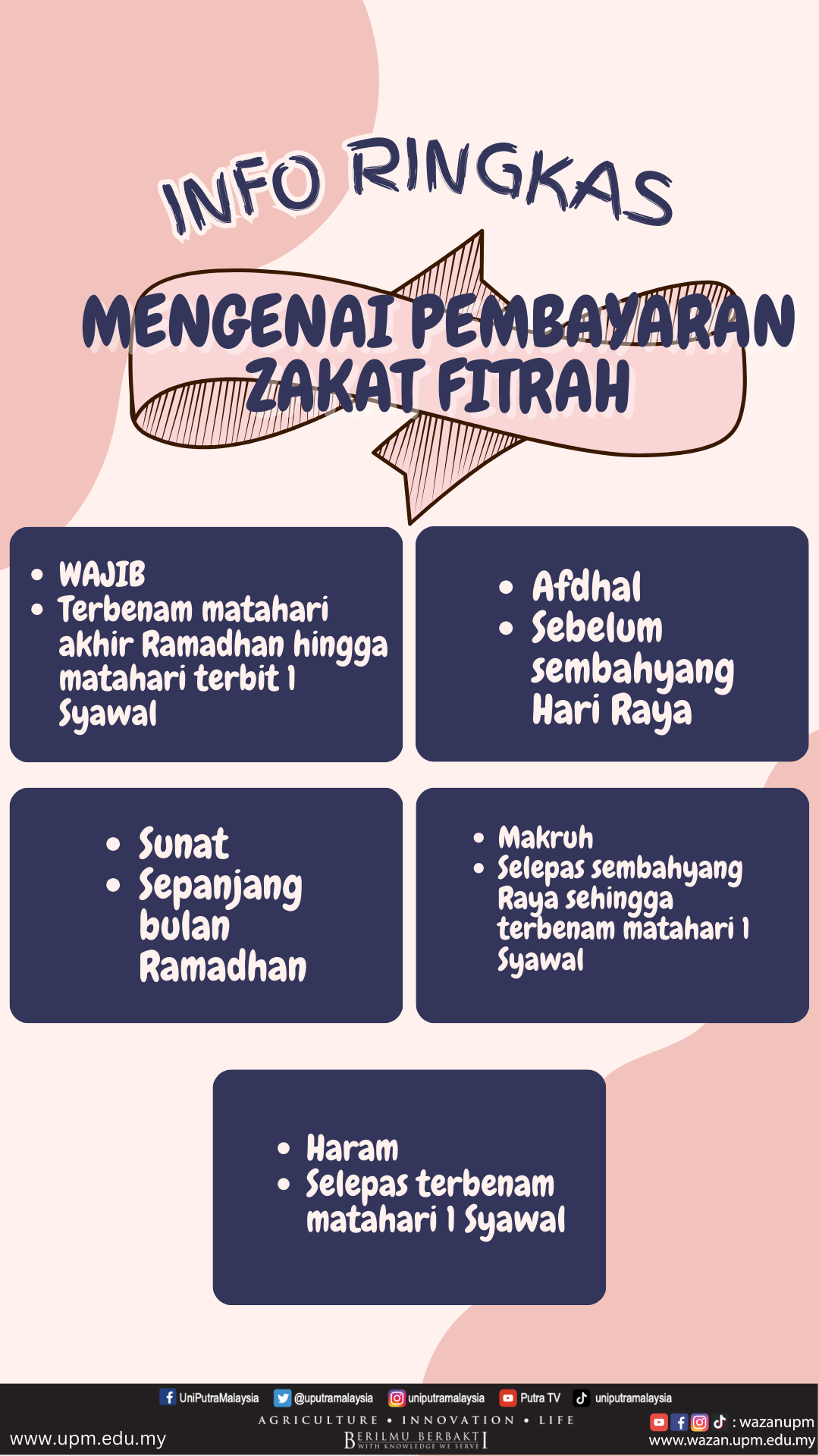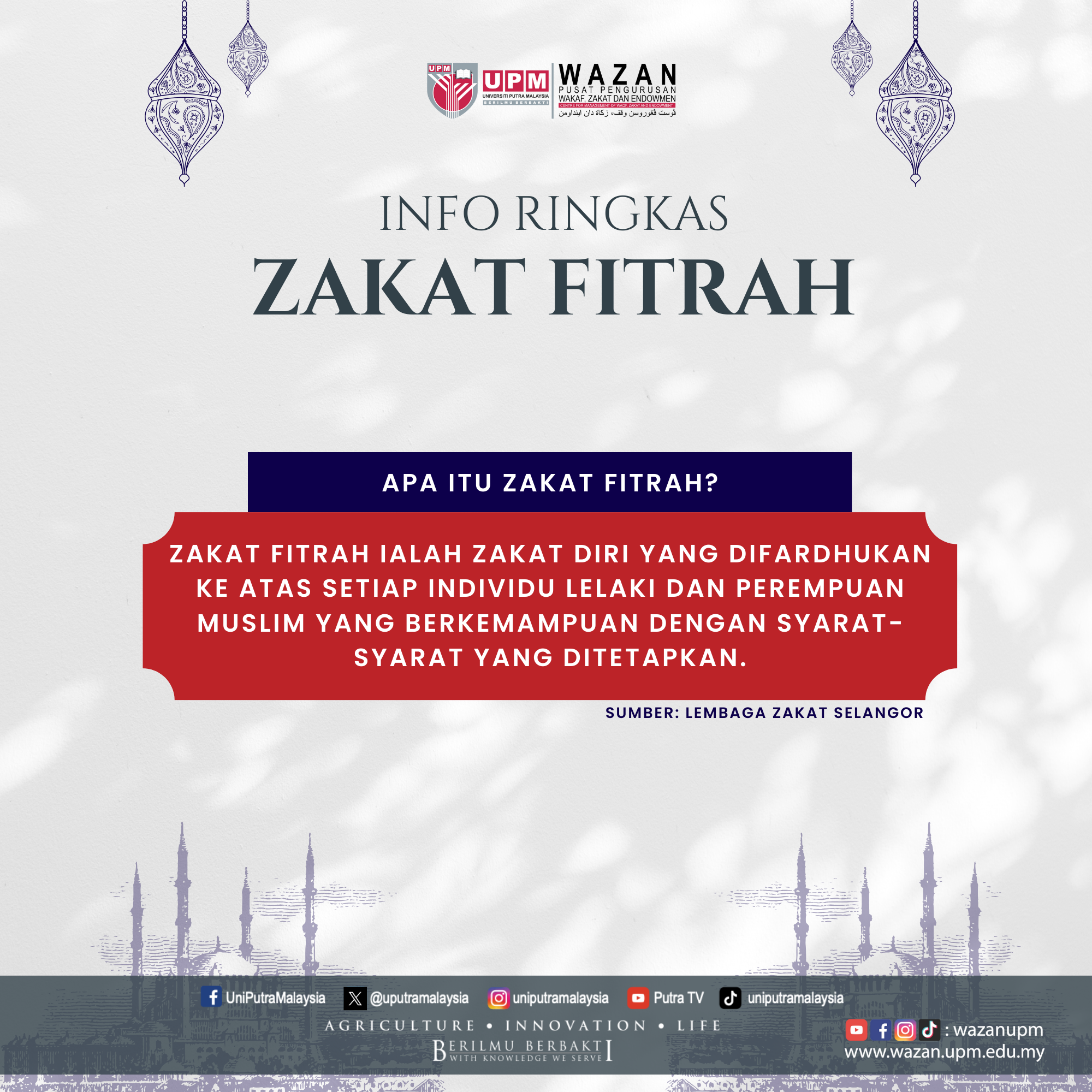Allah SWT has prescribed zakat as one of the main acts of worship from the five Pillars of Islam. From Abdullah Ibn 'Umar narrates that the Prophet SAW said:
بÙÙ†ÙÙŠÙŽ الإÙسْلاَم٠عَلَى خَمْس٠شَهَادَة٠أَنْ لاَ Ø¥ÙÙ„ÙŽÙ‡ÙŽ Ø¥Ùلاَّ اللَّه٠وَأَنَّ Ù…ÙØَمَّدًا عَبْدÙه٠وَرَسÙولÙÙ‡Ù ÙˆÙŽØ¥Ùقَام٠الصَّلاَة٠وَإÙيتَاء٠الزَّكَاة٠وَØَجّ٠الْبَيْت٠وَصَوْم٠رَمَضَانَ
“Islam is built upon five: to worship Allah and to disbelieve in what is worshiped besides him, to establish prayer, to give charity, to perform Hajj pilgrimage to the house, and to fast the month of Ramadan.” Hadith riwayat Muslim (1/21)
Zakat is a special act of worship in Islamic Sharia because it catalyses economic growth and safeguards the welfare of the less fortunate. There are so many wisdoms of zakat. Among them is to distribute wealth from the rich to those who need help so that wealth does not remain stagnant or hovering among certain groups only and to clean up wealth for zakat payers. The words of Allah SWT:
كَيْ لَا ÙŠÙŽÙƒÙونَ دÙولَةً بَيْنَ الْأَغْنÙيَاء٠مÙنكÙمْ
Meaning : (...so that it may not circulate only between the rich among you 59:7).
Zakat should be given to those who have the right to receive it, as Allah SWT says in the Holy Quran:
Ø¥Ùنَّمَا الصَّدَقَات٠لÙلْÙÙقَرَاء٠وَالْمَسَاكÙين٠وَالْعَامÙÙ„Ùينَ عَلَيْهَا وَالْمÙؤَلَّÙÙŽØ©Ù Ù‚ÙÙ„ÙوبÙÙ‡Ùمْ ÙˆÙŽÙÙÙŠ الرّÙقَاب٠وَالْغَارÙÙ…Ùينَ ÙˆÙŽÙÙÙŠ سَبÙيل٠اللَّه٠وَابْن٠السَّبÙيل٠ÙَرÙيضَةً مّÙÙ†ÙŽ اللَّه٠وَاللَّه٠عَلÙيمٌ ØÙŽÙƒÙيمٌ
The alms are only for the poor and the needy, for those who collect them, for those whose hearts are to be reconciled, for the freedom of those who are captives and in debt, for the cause of Allah, and for the wayfarers; [it is] a duty imposed by Allah. Allah is the Knower, the Wise"
At-Taubah : 60
The law of paying zakat for Muslims who meet the conditions is obligatory according to text and consensus as stated in the letter written by Sayyidina Abu Bakar RA:
Ù‡ÙŽØ°ÙÙ‡Ù ÙَرÙيضَة٠الصَّدَقَة٠الَّتÙÙŠ Ùَرَضَ رَسÙول٠اللَّه٠صَلَّى الله٠عَلَيْه٠وَسَلَّمَ عَلَى المÙسْلÙÙ…Ùينَ
These are the orders for compulsory charity (Zakat) which Allah's Messenger (ï·º) had made obligatory for every Muslim
Hadith narrated by Bukhari: 1454
The jurists agreed that the government has the right to collect and distribute zakat, and the government should manage it in a systematic and organized manner. This is so that the zakat can be managed efficiently and ensure that it is channelled to the Asnaf (the poor) who really need it. (Refer to Fiqh al-Zakat al-Qaradawi, 2/208)
Therefore, the government is obliged to appoint an amil to collect zakat. The Prophet SAW and the caliphs after him have sent representatives to collect zakat. This is because there are people in the community who do not know the obligation to pay zakat or be stingy, so it is obligatory for the leader to appoint a representative to collect it. (Refer to Kitab Al-Majmu' Syarh Muhazzab 6/168)
According to the law in Malaysia, the power to collect and distribute zakat is placed under the authority of the state. The task is carried out by the State Islamic Religious Council (MAIN). Therefore, the act of self-distributing zakat without going through a representative appointed by the government is a violation of the law under Section 16 (b) of the Syariah Criminal Offenses Act (Federal Territory) 1997 (Act 559) and can be punished if convicted.
The 76th Muzakarah of the National Fatwa Committee which took place in 2006 has determined that distributing zakat privately without going through Baitulmal is valid if it is distributed to eligible Asnaf. However, breaking the rules and laws in matters of goodness is sinful. This is because Islam obliges its people to obey and obey the government (ulil amri) in good matters.
Conclusion
Based on the arguments and discussions above, we are of the view that it is best to submit the zakat to the authorities appointed by the government (ulil amri) such as the Zakat Collection Center, State Islamic Religious Council or parties appointed by the government. This is because obeying the ruler (ulil amri) in good matters is a Muslim's duty.
Whereas if you want to give private help to those in need such as tahfiz schools, orphanages and so on, then we believe that it is very welcome to give as alms or personal contribution, and not as zakat.
May Allah SWT always give us taufiq and guidance to continue to perform righteous deeds and obedience to Him. Amin.














.png)










